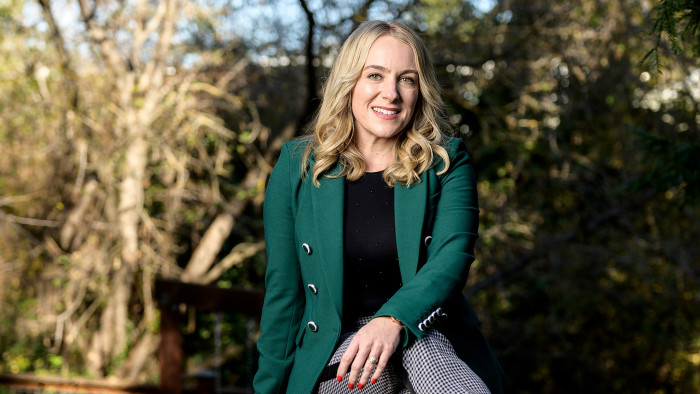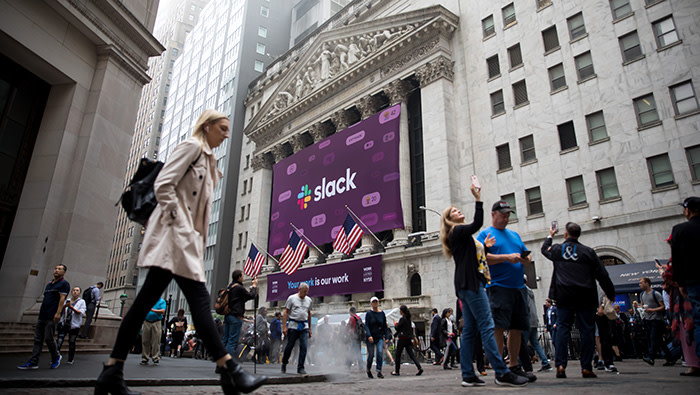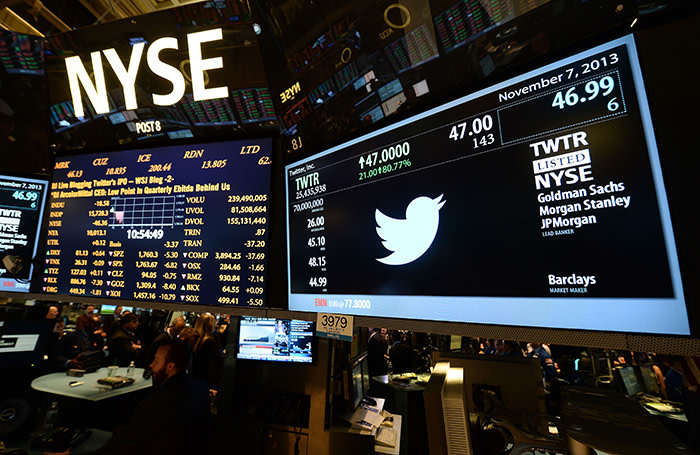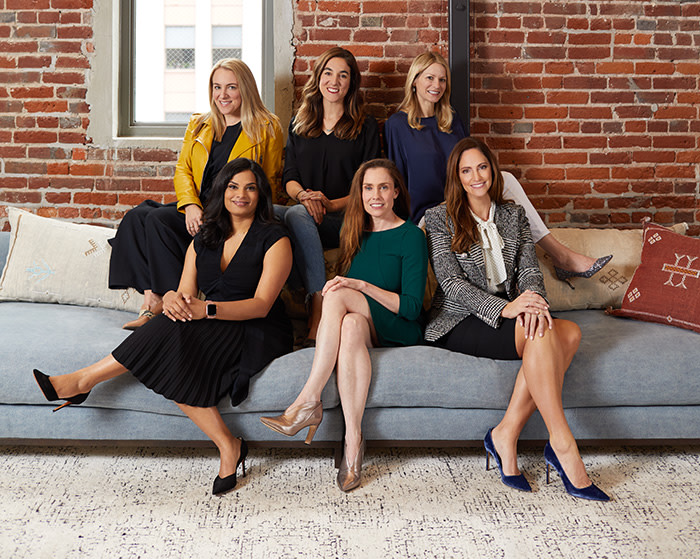The other gender gap: equity and equality in Silicon Valley

Roula Khalaf, Editor of the FT, selects her favourite stories in this weekly newsletter.
After 20 years at the heart of San Francisco’s tech scene, April Underwood is on a mission to challenge male domination of the start-up community in Silicon Valley and the Bay Area.
Her CV reads like a roll-call of tech’s top companies. She worked at Intel before studying for an MBA at the University of California, Berkeley’s Haas School of Business, graduating in 2007.
During her studies she was an intern at Apple and afterwards became a senior technology manager at Google. She then moved to Twitter and on to Slack where she eventually became its chief product officer, benefiting from both companies’ IPOs along the way.

The experience highlighted to Underwood that while the gender pay gap in Silicon Valley is well known, the gender equity gap is less so. “A lot of attention is given to salary differences, but there is currently no transparency on equity ownership,” Underwood says. “It is equity that makes you wealthy in Silicon Valley, not your salary.”
Now, alongside founding a new growth advisory company Wise Owl, Underwood is focused on #Angels, an investing “collective” she co-founded in 2015 with colleagues from Twitter. Alongside investing in companies, the group is also pushing for more transparency around who owns start-ups.
“It started from a shared desire we had to angel invest,” Underwood explains, speaking in her car while driving to a meeting across the Golden Gate Bridge. “Frankly, we wanted to be like our male peers who were getting involved in some of the most successful companies in the community.”

She met her #Angel co-founders at Twitter. They all joined the social media business in 2010 when it employed just 150 people. Part of the benefit of joining a tech start-up early is the chance to gain equity in the business, with grants tending to decrease as the company matures. While it is a risky move, the gamble can pay dividends if the business goes public or is acquired, something former employees can benefit from if they hold on to their shares.
Underwood and her colleagues worked hard at Twitter as the company grew to more than 5,000 employees and listed on the New York Stock Exchange in 2013. The windfall they received from their shares sparked the idea of pushing for more female equity stakeholders in new ventures.
The goal of #Angels is to bring the same level of transparency to the gender divide in angel investing as has been given to gender pay divides, Underwood adds.

The most significant achievement of #Angels to date is the creation of Gap Table, a piece of research that looks at the ownership of start-ups with venture capital by gender. The name is a pun on the term cap table, which is a legal document recording who owns what shares in a company and how many of them they control.
According to the #Angels team, there are four main groups of people who have significant ownership on Silicon Valley cap tables: founders, investors, senior executives and early employees.
Women are under-represented in each of these key roles, the Gap Table research revealed. “It’s no exaggeration to estimate that a founder or senior executive has one-hundred or one-thousand times the number of shares compared to a non-early member of the team, particularly in large organisations,” the group writes on its blog.
A company may have 30 per cent female employees, but if women are not proportionately represented as founders, executives, early employees and investors, they will own far less than 30 per cent of the company, #Angels argues. “Viewed through this lens, the power dynamics of the technology industry are far more lopsided than we currently measure,” they add.
Underwood hopes that the research of the Gap Table project will spark real change in the gender balance of investment teams. However, she notes, they are only one part of a much wider movement to bring greater equality to the tech sector. “There are all sorts of different groups coming at different parts of the inequalities in the tech start-up world,” she says. “There is not one group that moves the needle for everybody. It will be a combination of all these efforts.”
Underwood’s social conscience was reflected in her choice of undergraduate school. It was Berkeley university’s reputation for nurturing social change in the US, and the civil rights movement in particular, that piqued her interest in studying there. “To me, Berkeley was synonymous with progressive thinking,” she says.
The engineering school at Berkeley offered her a place as an undergraduate but Underwood opted to study chemical engineering at the University at Texas at Austin, later switching to business, because its scholarships covered her tuition costs. That decision, however, made her more determined to try Berkeley’s Haas school for postgraduate studies, says Underwood.
CV
2001 Graduated from Texas university with business administration degree
2002 Enterprise applications developer at Intel
2002 Product manager and software engineer at Travelocity
2006 Studied for MBA at Haas; intern at Apple
2007 Graduates; senior partner technology manager at Google
2009 Product manager for travel at WeatherBill
2010 Director of product at Twitter
2015 Founded #Angels with five former colleagues from Twitter
2015 Vice-president of product at Slack
2017 Joined board of Zillow Group
2018 Chief product officer at Slack
2019 Moved to independent board, advisory, and investing work
Once she got her MBA, Plan A was to start a new career in real estate. Underwood had worked for technology companies since her bachelors degree in business administration and thought she might like a change. “I had fallen into tech after my undergraduate studies, so I did not know any different.”
Yet the lure of tech remained too great. Underwood arrived at Haas just as the first iPhone was released. This opened a new era of smartphone-driven business models that she was eager to be a part of. “I fell in love with tech all over again,” she says.
Underwood was encouraged by her favourite professor at Haas, Pablo Spiller, who taught the class on how business interacts with digital media.

Each week a member of the Silicon Valley tech community would give a guest lecture. When the class finished, Prof Spiller would invite one student to join him and the speaker for dinner.
Philip Rosedale, founder of Linden Lab, the creator of the virtual world Second Life, was the guest when it was Underwood’s turn for dinner. Hearing first-hand the highs and lows of his experiences gave her confidence to speak to founders, Underwood says.
“Up until that point I hadn’t been exposed to founders,” she says. “Sitting down to dinner with Philip showed me how he was really just another human who I could have a great conversation with.”
“If I didn’t have that experience I don’t think I would have the confidence to speak on a level with founders today.” Now, as an angel investor, Underwood is not just having those conversations — she is leading a change in who has a seat at the table.
Comments